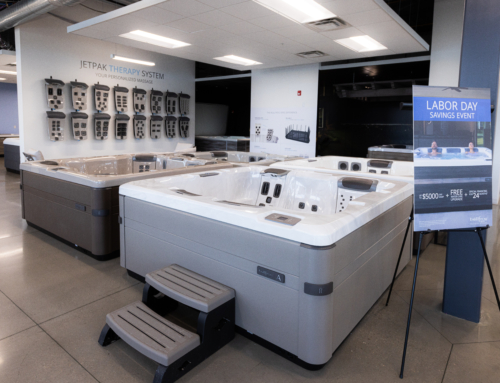Do you see yourself as a manager, as a leader or both? There is a difference between managing and leading. Managing centers on generating measurable outcomes and controlling work output, budgets and costs, what you might call the “behind the scenes” work. According to Lois P. Frankel of Corporate Coaching International, “Managers tend to mandate policies and procedures that too often restrain new ideas from getting off the ground.”
Leaders, on the other hand, are inspirational in that they encourage meeting challenges and creating change, and they provide an unobstructed path for turning ideas into reality, what you might call “center stage” work. Successful retail managers are adept both behind the scenes managing discreet projects and center stage inspiring others to great performance. How do you gain this retail prowess? By honing the following skills.
- Leadership and integrity
- Decision-making
- Goal oriented and accountability
- Improvement spotter/Efficiency expert
- Communication
- Motivation
- Organization
Leadership and Integrity
Peter Drucker is quoted to say that “Management is doing things right; leadership is doing the right things.” Leading with integrity means that you also do the right things when no one is watching. The absolute best of the best can look you in the eye, be truthful, and sleep well at night because they know they did the right thing. Your staff will follow such a leader and will also know that in turn they need to do the right thing.
Management is doing things right; leadership is doing the right things. ~ Peter Drucker
At the same time, leaders are often admonished to “walk the walk,” ‘talk the talk,” “say what you mean and mean what you say” and a dozen other clichés. The actual word you’re looking for here is “Integrity.” Integrity means to lead by example, and you can demonstrate your integrity every day by exhibiting these four behaviors:
- Only make promises if you can keep them.
- Under promise and over deliver.
- Be honest with everyone, including yourself.
- Show others you value their time by being on time yourself.
Don’t be like the boss who arrived late to a meeting he scheduled for the express purpose of discussing employee lateness to work. Leaders are scrutinized by those under their leadership. They are expected to do what is right and to be seen doing it. They are expected to follow their own rules and to behave as they expect those who follow them to behave. In fact, when you model the traits you expect your employees to exhibit, they are much more likely to exhibit those traits. Practice integrity daily.
Decision-Making
An integral part of being an effective leader is the ability to make tough decisions quickly. Understanding the six basic stages in the decision-making process helps you do that:
- Defining: What is the challenge, the opportunity or the problem you need to deal with?
- Generating: What are the possible responses or solutions to the issue?
- Evaluating: What are the pros/cons or costs/benefits of the possible responses to the issue?
- Selecting: Which solution or response will you utilize?
- Implementing: Enacting the solution/response to the issue
- Assessing: What was the impact of the decision? Does it need modification? How could it be handled better, or differently, in the future?
This decision-making process can take place over a period of days or in a matter of minutes depending on the situation. Good leaders are capable of processing situations accurately and developing creative ways to address opportunities, challenges, and problems alike.
Goal Oriented and Accountability
Businesses often fail not because of bad employees or managers, but because they fail to take corrective action quickly enough when sales and profits start to decline. Managers should be willing and able to keep track of answers to these questions:
- What is the sales goal?
- What is the profits goal?
- What is the closing ratio of the sales team?
- What is the closing ratio of the individual salespeople?
- How many people come into the store in an average week?
- What are your review rankings online?
- How many referrals do you get each month?
- What is your profit per square foot?
- What is your best-selling spa model?
Too often, managers don’t work with clearly defined goals for each department and person, saying things like: “I trust my team, they do what needs to be done” or “I know they are following up with customers.” In today’s highly competitive, fast-moving world, that simply does not cut it anymore. Relying on gut feeling is not enough to ensure success.
Relying on gut feeling is not enough to ensure success.
Great managers set goals for each department, then they work with their team to put a plan together to reach those goals and then they take ACTION on the plan. The KEY is that they then hold themselves and their staff accountable for failures and successes. They celebrate success and use the failures as a learning opportunity, adjusting their aim if needed to get back on track working towards the goal.
Improvement Spotter/Efficiency Expert
An effective leader is always on the alert for areas that need improvement and ways to increase efficiency. Their main goal is to produce the best retail experience possible not only from the perspective of customers, but also from the perspective of their employees. How do these leaders spot areas in need of improvement or lacking in efficiency? They do it through collaboration, delegation, and team building.
- Collaboration: The best way to spot areas that need improvement is to foster a unified team. Invite employees to work together to identify potential areas for improvement or areas that aren’t operating efficiently. Help them set common goals for bettering those areas.
- Delegation: Often, the simplest way to increase efficiency is through delegation. Great leaders don’t just distribute tasks willy-nilly. They know which tasks to delegate and the best people to delegate them to, and once they’ve delegated, they don’t micromanage—they get out of the way and let people do their jobs while, at the same time, making themselves available for any questions that may arise.
- Team Building: Good leaders keep a close eye on work environment. They know when employees are unhappy, and they know that this can negatively affect customers and sales. These leaders counter this issue by establishing an inclusive workforce where everyone works together as a team to achieve a common goal.
Most importantly, the leaders with skills in spotting problems and improving efficiency also welcome change. They are willing to think outside the box to create a retail experience that satisfies their customers and their employees.
Communication
Strong leaders know how to communicate effectively across generations and via multiple platforms. One hallmark of good communicators is knowing how to set clear goals and making sure everyone understands their role. To this end, consider sending employees texts to remind them of current daily, weekly, and/or monthly goals. Post progress reports in break rooms and on employee only Facebook Forums. Don’t forget one-on-one time, too.
One hallmark of good communicators is knowing how to set clear goals and making sure everyone understands their role.
Listening is an important part of communication. When you talk with employees, encourage them to contribute ideas, ask them questions and really pay attention to their responses. Be open and honest and allow the same from your employees. Above all, foster positivity whenever possible by championing your business, products, employees, and customers.
Managers also have to be able to set up and run meetings and provide training to staff. They have to present projects and proposals to customers. Perfecting the art of clear communication and communicating in a way to prompt action and inspire others are key components to great success.
Motivation
Are you motivated? Are you a motivator? If you’re in a management position in retail, you had better be both. The good news is that if you know how to motivate yourself, it’s easier to motivate others. Many people respond to rewards and incentives, just be sure to ask employees what motivates them and what incentives they would like. Here are a few popular ideas that have worked for other spa retail managers:
- Employee of the Month Awards
- Gift Cards for meeting goals set with/by management
- Opportunities to attend seminars, conferences, and classes
- Sleep-in day
- House cleaning or laundry gift certificates
- Employing secret shoppers and rewarding employees for good reviews
- Watch for individual employees who aren’t achieving and help set personal goals and incentives
A great way to motivate employees is to make work enjoyable. Foster an atmosphere of challenge where it’s difficult to become bored or complacent. You can do this by investing in ongoing training and development activities, giving employees a voice with a willingness to put their ideas into practice, taking the time to recognize achievements both publicly and privately and by creating a strong sense of community. Empathy is vital to motivation. You’ll be able to better inspire and motivate your employees if you’re empathetic; they need to know that you are human, too.
Organization
Because a store manager has so many responsibilities, a lack of organization can very quickly lead to essential paperwork falling behind, missed opportunities and more. Having great organizational skills will ensure the store is neat and clutter free without piles of parts and boxes in a corner. Needless to say, a clean organized store is more attractive to customers and to employees.
When home shows or special sales come up, this skill is even more critical as now the manager will have to ensure the store is running well, staffed appropriately while setting up, manning and tearing down a booth–not to mention, continuing to make certain customers are taken care of and the store is stocked and clean.
While there are many other skills needed such as being a spa technician, water chemist, retail designer, backyard designer and more, perfecting the skills listed above are the ones that separate the average manager from a great one. This industry is a fast moving business and being able to stay on top of things, adapt quickly and efficiently, and being able to troubleshoot issues are a must. The best of the best are honest, work hard, jump in when needed to help in all departments, inspire their team to work towards their goals, hold themselves accountable first–and do all of it with a winning attitude.
 Danielle Lavallee Wasson from myretailcoach.com served as a Guest Contributor and industry insider for this article content. Danielle has over 26 years of experience working with pool and spa retailers and distributors around the world. Her business, My Retail Coach, helps B2C retailers get more customers, keep them longer and structure their business for profit through online training, one-one coaching and group training. You can learn more about their online courses for salespeople and managers at https://mycoach.thinkific.com/.
Danielle Lavallee Wasson from myretailcoach.com served as a Guest Contributor and industry insider for this article content. Danielle has over 26 years of experience working with pool and spa retailers and distributors around the world. Her business, My Retail Coach, helps B2C retailers get more customers, keep them longer and structure their business for profit through online training, one-one coaching and group training. You can learn more about their online courses for salespeople and managers at https://mycoach.thinkific.com/.









Leave A Comment